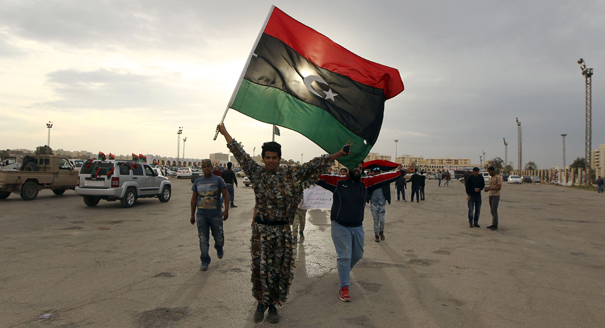Frederic Wehrey is a senior fellow in the Carnegie Middle East program who specializes in post-conflict transitions, armed groups, and identity politics, with a focus on Libya, North Africa, and the Gulf. He is the author of the upcoming The Burning Shores: Inside the Battle for the New Libya (Farrar, Straus and Giroux), which will be published in April. Wehrey also recently published an edited book, titled Beyond Sunni and Shia: The Roots of Sectarianism in a Changing Middle East (Oxford University Press). He was in Beirut in early February to participate in a Carnegie roundtable at which he talked about Libya’s policing sector, a topic he partly covered in his most recent article for Diwan, “The Sufi-Salafi Rift,” co-authored with Katherine Pollock. Diwan met with him then to discuss his forthcoming book.
To the Shores of Tripoli
Carnegie’s Frederic Wehrey discusses his forthcoming book on Libya after the fall of Moammar al-Qaddafi.
by Ghida Tayara






